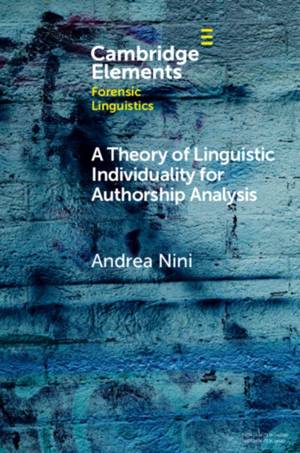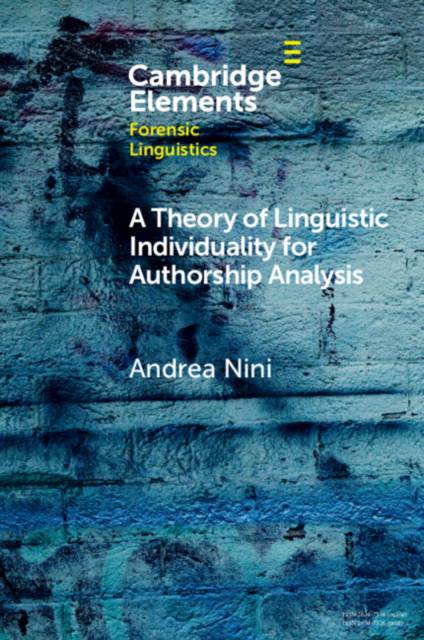
- Afhalen na 1 uur in een winkel met voorraad
- Gratis thuislevering in België vanaf € 30
- Ruim aanbod met 7 miljoen producten
- Afhalen na 1 uur in een winkel met voorraad
- Gratis thuislevering in België vanaf € 30
- Ruim aanbod met 7 miljoen producten
Zoeken
Omschrijving
Authorship analysis is the process of determining who produced a questioned text by language analysis. Although there has been significant success in the performance of computational methods to solve this problem in recent years, these are often methods that are not amenable to interpretation. Authorship analysis is in all effects an area of computer science with very little linguistics or cognitive science. This Element introduces a Theory of Linguistic Individuality that, starting from basic notions of cognitive linguistics, establishes a formal framework for the mathematical modelling of language processing that is then applied to three computational experiments, including using the likelihood ratio framework. The results propose new avenues of research and a change of perspective in the way authorship analysis is currently carried out. This title is also available as Open Access on Cambridge Core.
Specificaties
Betrokkenen
- Auteur(s):
- Uitgeverij:
Inhoud
- Aantal bladzijden:
- 75
- Taal:
- Engels
- Reeks:
Eigenschappen
- Productcode (EAN):
- 9781108971386
- Verschijningsdatum:
- 15/06/2023
- Uitvoering:
- Paperback
- Formaat:
- Trade paperback (VS)
- Afmetingen:
- 152 mm x 229 mm
- Gewicht:
- 154 g

Alleen bij Standaard Boekhandel
+ 63 punten op je klantenkaart van Standaard Boekhandel
Beoordelingen
We publiceren alleen reviews die voldoen aan de voorwaarden voor reviews. Bekijk onze voorwaarden voor reviews.











